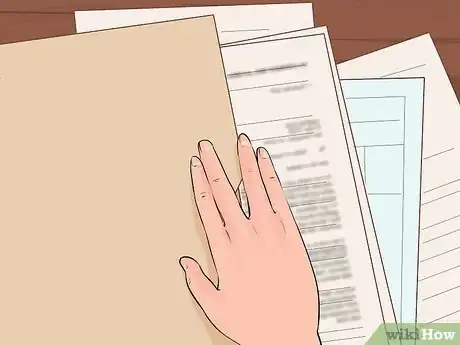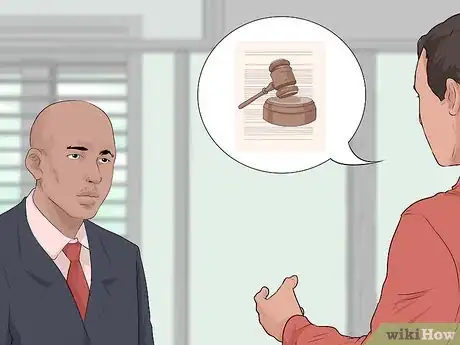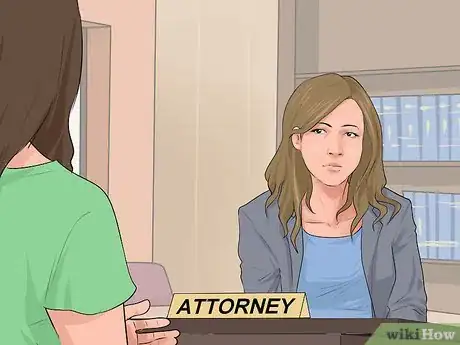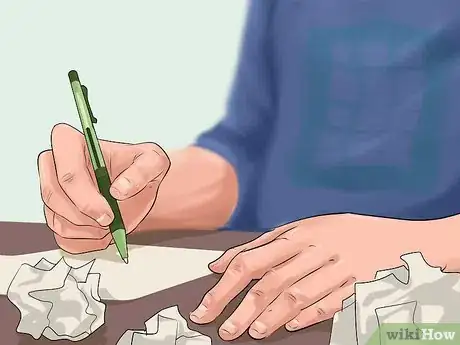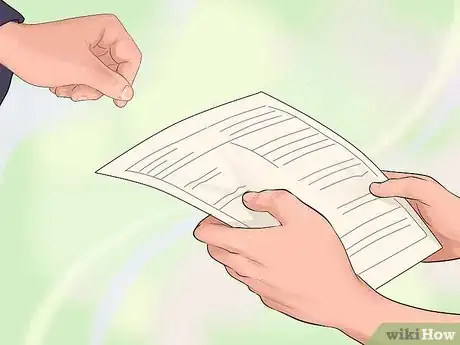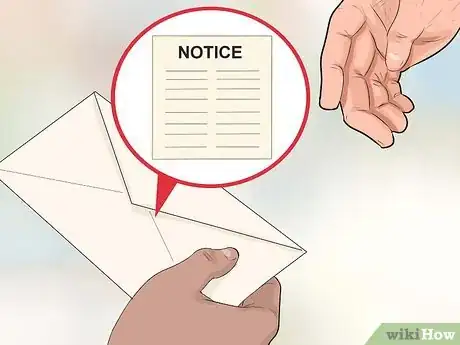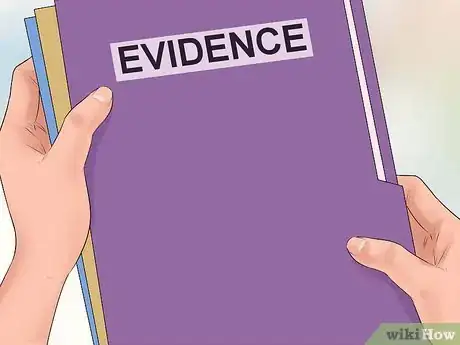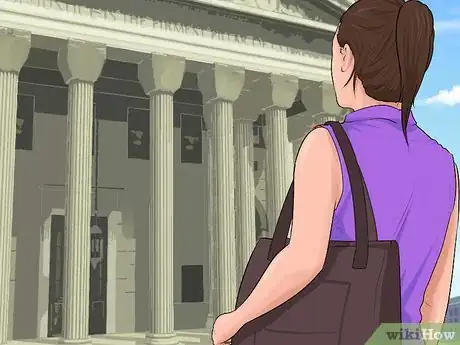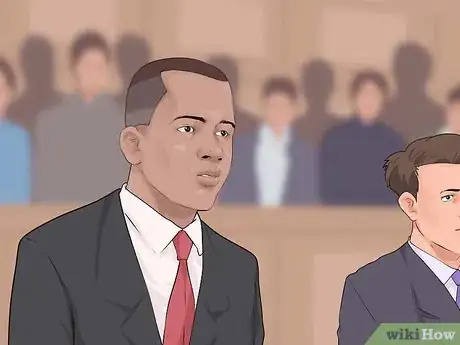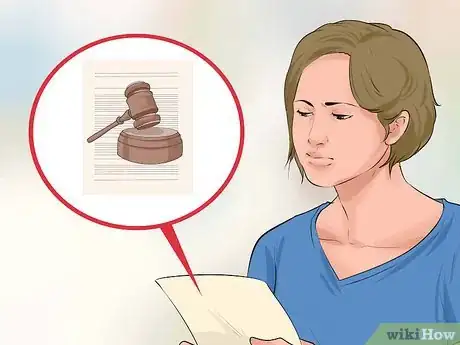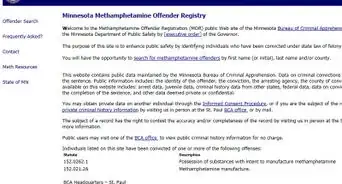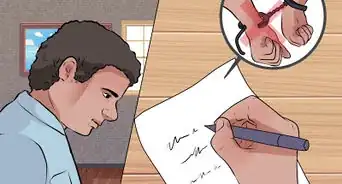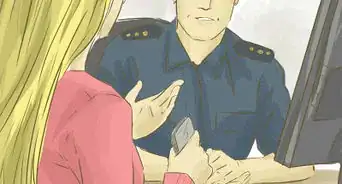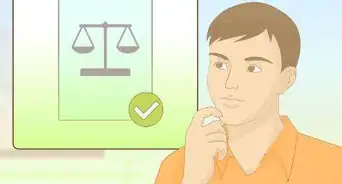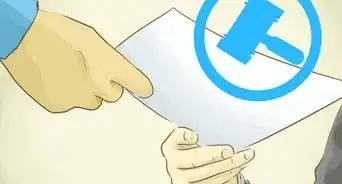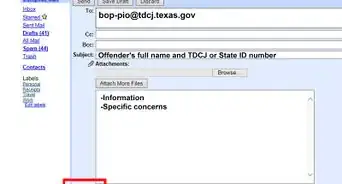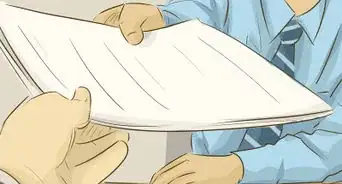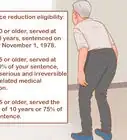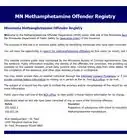This article was written by Jennifer Mueller, JD. Jennifer Mueller is an in-house legal expert at wikiHow. Jennifer reviews, fact-checks, and evaluates wikiHow's legal content to ensure thoroughness and accuracy. She received her JD from Indiana University Maurer School of Law in 2006.
This article has been viewed 51,557 times.
Probation can be difficult and cumbersome – especially if you believe you have been fully rehabilitated and want to get on with your life. Not all jurisdictions allow you to end your probation early, but in those that do, you stand to enjoy several major benefits – not the least of which is a restoration of many of your rights, including a potential restoration of your right to bear arms. In jurisdictions that allow you to end your probation early, you must meet the basic qualifications, file a motion in court, and attend a hearing before a judge.[1]
Steps
Preparing Your Request
-
1Check your eligibility. Each state has requirements you must meet before a judge will even consider your request to end your probation early.
- Your parole officer or criminal defense attorney should be able to tell you what the state's requirements are for ending probation early, as well as explain the specific process by which you request it.[2]
- At a minimum, you must have complied with all terms of your probation, which typically includes having paid in full any fines or restitution you were ordered to pay as a result of your conviction.[3] [4]
- Most courts also will not consider a request to end probation early unless you have completed at least half of your probation term. So if, for example, you were sentenced to four years of probation, and you've only served a year and a half, you should probably wait until you hit the two-year mark to make your request.[5] [6]
- States that allow the possibility of early termination of probation often don't allow it for certain types of crimes, so in addition to fulfilling all the conditions of your probation, you should check to make sure your crime is one of the ones for which early termination is available.[7]
-
2Gather information to support your request. Before you start drafting your motion, make sure you have all the necessary documentation to prove you're eligible to have your probation ended early.
- If you've paid all fines and restitution, you'll need a copy of the statement from the clerk declaring your account was paid in full.[8]
- If you were ordered to attend any treatment or counseling sessions, you'll need copies of any records or documents showing your attendance or successful completion of those sessions or programs.[9]
- Work records also may be particularly important, especially if you've won any awards or gotten any promotions at your job during the time you've been on probation.[10]
- Documentation of any other positive steps you've made in your life also can be beneficial to your case. For example, if you are active in church or community events, or volunteer for a non-profit organization, showcasing these activities can look really good to the judge considering your request.[11]
Advertisement -
3Look for prepared forms. Some jurisdictions may have fill-in-the-blank forms you can use to prepare your motion requesting that a judge end your probation early.
- If you can't find forms at the clerk's office, you also may be able to find forms or assistance at your nearest legal aid society or self-help clinic.
-
4Consider consulting an attorney. A criminal defense attorney with experience in probation matters may best be able to ensure your request is successful.
- If you had a good relationship with the criminal defense attorney who represented you in your original case, you probably can go back to him or her with assistance in this matter.
Filing Your Motion
-
1Draft your motion. If your court doesn't have fill-in-the blank forms available that you can use to file your motion, you should search for similar motions filed in other cases in the same court that you can use as guides.
- In some states, writing a letter in which you discuss the reasons you believe you qualify for an early termination of your probation will suffice.[12]
- You also may need to attach a statement or affidavit from your parole officer confirming the statements you've made and supporting your request.[13]
- In addition to the motion itself, you probably also will need additional documents such as a certificate of service or a notice of hearing. You should check with the clerk's office to see which forms are required for your situation. Even if the court doesn't have forms for the motion itself, it will have forms for these basic documents.
- After you've completed your motion and other documents, but before you file them, make sure you make at least two copies since the court clerk will keep the originals. You will need a copy to serve on the prosecuting attorney as well as a copy for your own records. In some jurisdictions you also need another copy to serve on the probation office.
-
2Take your motion to the clerk's office. Once you've completed your motion you must file it in the clerk's office of the court where you were originally sentenced.[14]
- You typically will have to pay filing fees of $100 or less when you file your motion. If you can't afford the fees, you may be able to apply for a waiver.
- When you file your motion, the clerk typically will assign a date for your hearing. Because the prosecuting attorney must have notice of the hearing in advance, typically at least two days, you should serve your motion as soon as possible after you've filed it.[15]
-
3Serve your motion on the prosecuting attorney. The prosecuting attorney must have the opportunity to argue against your motion to end your probation early.
- You typically can complete legal service by mailing your documents to the prosecuting attorney's office using certified mail with returned receipt requested. Keep the returned receipt as proof that you completed the legal service requirements.
- You also can use the sheriff's department or a private process serving company to serve the documents personally.
- If you have an attorney, he or she probably will speak to the prosecutor about your motion in advance of the hearing and try to convince the prosecuting attorney to support your motion. If the prosecutor also supports your motion, you'll have a much easier time convincing the judge to grant it.[16]
- Once service is completed, either you or the person who completed service must fill out a proof of service form and file it with the clerk.
-
4Prepare for your hearing. Organizing your evidence and talking to any potential witnesses you may want to call will help ensure your hearing runs smoothly.
- You also should consider presenting any hardships you might be experiencing as a result of probation – although keep in mind that you may not receive much sympathy. However, if being on probation is keeping you from advancing at work, or limiting your ability to care for family out of state, these facts may help your request to end your probation early.[17]
- If you plan on calling witnesses, make sure you talk to them well in advance of the hearing so they understand the types of questions they'll be asked and the reason they're being called as a witness.
- You also can use your preparation time to brainstorm possible questions that you or your witnesses might be asked by the prosecutor on cross-examination, and how you might answer those questions.
Attending Your Hearing
-
1Arrive in court on your hearing date. Be sure to arrive early so you have time to go through courthouse security and find the courtroom where your hearing will be held.
- Bring along with you copies of all documents you've filed with the court regarding your request to end your probation early. You don't have to wear a suit, but dress in clean, conservative clothing.
- Treat all court staff, the prosecutor, and the judge with courtesy and respect. Generally, you shouldn't speak unless asked a question, and then keep your statements clear and concise. Don't interrupt the judge or prosecutor when they are talking.
-
2Present your case. Since you filed the motion, you typically will have the opportunity to tell the judge your story first.
- While you should present evidence that you've fulfilled the requirements of probation and generally been a model citizen throughout your term, whether your request to end your probation early largely hinges on whether probation is preventing you from achieving something important or necessary, such as a promotion at work or a family obligation.[18]
- Keep in mind that fulfilling all of the conditions and requirements of your probation is what you're supposed to do, not necessarily something for which you'll be rewarded. To some judges and prosecutors, your reward for fulfilling the terms of your probation is that you don't have to go back to jail.
- Stick to the facts and present your case briefly and simply. You don't have to know a lot of legal terminology or principles, just tell the judge the reasons you believe your probation should be terminated early.
-
3Listen to the prosecuting attorney. If a prosecuting attorney attends to argue against ending your probation early, he or she will have the opportunity to present an opposing argument.
- The judge will consider the prosecutor's opinion when deciding whether to grant your motion, so it's very important that, if at all possible, you get the prosecutor on your side to support your motion.[19]
- If the prosecutor expresses reservations about early termination of your probation, the judge may ask you questions based on those reservations or concerns. Answering those questions completely and honestly can help the judge feel more comfortable granting your motion.
-
4Receive the judge's decision. After hearing all evidence, the judge will decide whether to grant your motion and end your probation early.
- Typically you don't have a right to appeal the judge's decision, since you have no right to end your probation early. So if the judge denies your request, you'll have to complete the end of your probation term.[20]
References
- ↑ http://www.shouselaw.com/early-probation-termination.html
- ↑ http://criminal-law.freeadvice.com/criminal-law/parole_probation/early-termination-of-probation-process.htm
- ↑ http://criminal-law.freeadvice.com/criminal-law/parole_probation/early-termination-of-probation-process.htm
- ↑ http://thelawdictionary.org/article/how-to-get-off-probation-early/
- ↑ http://criminal-law.freeadvice.com/criminal-law/parole_probation/early-termination-of-probation-process.htm
- ↑ http://thelawdictionary.org/article/how-to-get-off-probation-early/
- ↑ http://thelawdictionary.org/article/how-to-get-off-probation-early/
- ↑ http://criminal-law.freeadvice.com/criminal-law/parole_probation/early-termination-of-probation-process.htm
- ↑ http://criminal-law.freeadvice.com/criminal-law/parole_probation/early-termination-of-probation-process.htm
- ↑ http://criminal-law.freeadvice.com/criminal-law/parole_probation/early-termination-of-probation-process.htm
- ↑ http://criminal-law.freeadvice.com/criminal-law/parole_probation/early-termination-of-probation-process.htm
- ↑ http://criminal-law.freeadvice.com/criminal-law/parole_probation/early-termination-of-probation-process.htm
- ↑ http://criminal-law.freeadvice.com/criminal-law/parole_probation/early-termination-of-probation-process.htm
- ↑ http://www.shouselaw.com/early-probation-termination.html
- ↑ http://www.shouselaw.com/early-probation-termination.html
- ↑ http://www.shouselaw.com/early-probation-termination.html
- ↑ http://criminal-law.freeadvice.com/criminal-law/parole_probation/early-termination-of-probation-process.htm
- ↑ http://thelawdictionary.org/article/how-to-get-off-probation-early/
- ↑ http://www.shouselaw.com/early-probation-termination.html
- ↑ http://thelawdictionary.org/article/how-to-get-off-probation-early/

